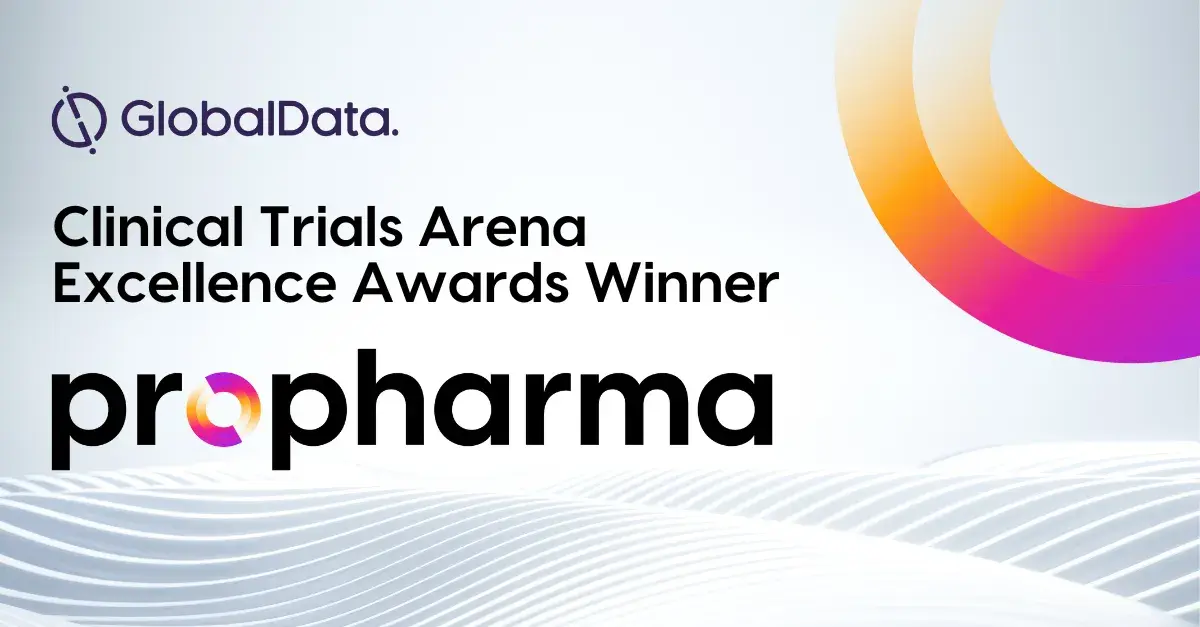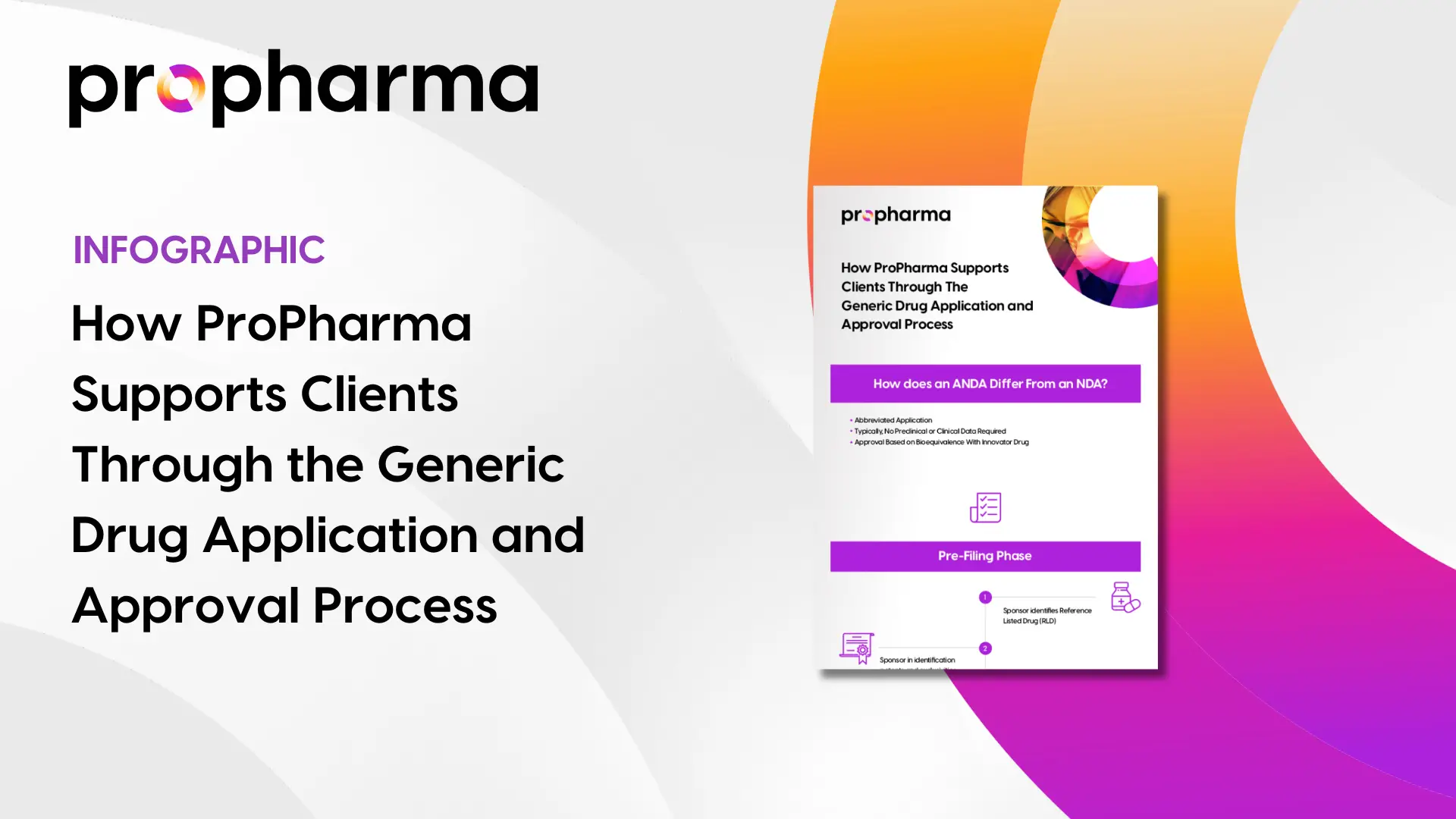Pharmacovigilance
Comprehensive Pharmacovigilance strategies enhance patient safety and mitigate risks throughout the product lifecycle.



Pharmacovigilance Services
How do you choose a Pharmacovigilance (PV) provider? The first step is to focus on the basics of quality, efficiency, and compliance, key factors visible in most every program. The next level involves analyzing how the team responds to your individual needs and ad hoc requests, such as identifying the options available for more unusual projects.
Next, is assessing the culture and "the fit" for this long-term partnership. It’s important to be understood and see eye-to-eye. After all of that, true success in finding the best pharmacovigilance ally requires a higher-level appraisal to see how the PV group functions when you're not even looking.
Are they moving forward without hesitation to be ready for a potential expedited submission? Are efficiency ideas shared proactively with clients? Is there an awareness of upcoming regulatory changes and how they might affect your project?
Ask us the questions. Let ProPharma show you the way we believe every client should be treated — as if their project were our only project.
Pharmacovigilance Solutions
Whether the path ahead includes a first-in-human investigative trial or global product approval, we’re here to help. From clinical development through post-marketing surveillance, your team can rely on our industry-leading PV specialists providing a full suite of services to ensure your PV system fulfills regional and global regulations, and continuously monitors the safety of your products.
ProPharma offers stand-alone contracts utilizing our myriad PV services or integration with global Clinical Research Services, Medical Information, or Regulatory services.

Clinical Pharmacovigilance
The early stages of a clinical program can be costly, trying to determine the services to trim down and where to really invest. Our solution is a simple yet scalable model starting with the basics: a safety database that can go the distance from clinical studies into post-marketing, a project team that is trained to understand the safety profile of the product and the sponsor’s motivations, and sound regulatory intelligence to navigate the guidances and requirements.
As the global reach and the complexity of the program grows, so too do the possible services, including literature search and review, custom database reports, or signal management. We share your cost concerns and have created options for many of our services from database access to Global Safety Plans—each with different price tags depending on the level of service chosen. You want to choose where to trim down and where to invest, and we want to help.
Post-marketing Pharmacovigilance
Post-marketing pharmacovigilance programs should not be handled applying a one-size-fits-all mentality. Requirements may look very different depending on the country or region in which a marketing authorization is held. The addition of business partners may create the need to write and maintain a safety data exchange agreement or a PV agreement.
Changes to the safety profile of the product may require a more robust signal detection program to be implemented. A health authority may require a post-authorization safety study or a Risk Evaluation and Mitigation Strategy. Whichever way the life- cycle of your product takes you, ProPharma is here to support all of your needs. From our Benefit-Risk team to our QPPV office. Monitoring the safety of our client’s products, it’s what we do every day.
Safety Systems
The Pharmacovigilance System Master File (PSMF) describes the PV system of the Marketing Authorization Holder (MAH) and is a legal requirement for MAHs to maintain and make available to Health Authorities . Prior to inspections, Health Authorities routinely request this document and it can also be requested on an ad hoc basis. Information is included from many stakeholders including Quality Assurance, Regulatory Affairs, and all areas of PV, so keeping the PSMF up-to date is a critical task. Using well-honed processes, standardized templates, and experienced staff, ProPharma can support you with this activity.
The Risk Management Plan (RMP) or Risk Evaluation and Mitigation Strategy (REMS) describes the PV system for mitigating risk in a program. These documents identify, characterize, and work to minimize the significant risks of a medicinal product. The overall aim of any risk management program is to ensure that the benefits of the medicinal product exceed the risks by the greatest achievable margin, and here’s where ProPharma can help. Our team of experts can support the preparation and maintenance of your RMP or take over the preparation and maintenance altogether. Our experience extends to the preparation of RMPs for well-established products, generics, innovators, biosimilars, as well as fixed combination products.
Talk to an ExpertQPPV Office
Appointing an experienced Qualified Person for Pharmacovigilance (QPPV), Local Person for Pharmacovigilance (LPPV), and deputy QPPV/LPPV can require considerable time and resources.
Although the requirements and responsibilities of a QPPV are specified in EU and UK legislation, LPPVs are subject to their own national legislation (e.g., the Graduated Plan Officer "Stufenplanbeauftragter" for Germany), which can also be daunting. As a global pharmacovigilance provider, ProPharma can advise you on the varied requirements for QPPVs and LPPVs to determine the services that will accommodate your business needs and ensure compliance with the pharmacovigilance legislation unique to each location.
Once you’ve identified your requirements, ProPharma can provide appropriately qualified and experienced QPPVs, LPPVs, and deputies globally. We have a world-wide network of QPPVs and LPPVs to serve you with their expertise from Europe to Australia and in more than 50 countries.
Through simple and scalable solutions, we provide tiered options and customized services to fit your needs. Contact us to learn more about our QPPV and LPPV services.
Explore our QPPV Services
Role of the EU QPPV
Every Marketing Authorization Holder (MAH) in Europe has an obligation to establish a pharmacovigilance (PV) system for the fulfillment of PV tasks for its products. When setting up a PV system in Europe, the MAH must appoint an EU QPPV to establish and maintain the MAH’s PV system. In addition to the establishment and oversight of the PV system, the QPPV also has several legislative responsibilities.
Responsibilities of the EU QPPV include:
- Establish and maintain the MAH’s PV system
- Monitor the safety of the MAH’s drug products
- Coordinate actions to stay compliant with local legislation
- Serve as the 24/7 point of contact for Competent Authorities
- Conduct audits and inspections to ensure compliance with EU regulations

Role of an LPPV
In addition, many European and other countries legally require a Local Person for Pharmacovigilance (LPPV) at a country level who may report to the EU QPPV (e.g., for Germany a Stufenplanbeauftragter is required). Although the requirements and responsibilities of an EU QPPV are specified in EU legislation, LPPVs are subject to their own national legislation.
Some QPPVs may have their own network of LPPVs to help fulfill local requirements. As a global pharmacovigilance provider, ProPharma can advise you about the various important requirements for EU QPPVs and LPPVs, to ensure you have the right resources in place to fully comply with the regulations for your PV system in Europe.
Get Expert Guidance Managing Legislation Requirements
ProPharma can support your organization through the provision of appropriately qualified and experienced QPPVs, LPPVs, and deputies.
ProPharma’s experts can advise you about the different roles and responsibilities of the EU QPPVs and LPPVs and offer services that can accommodate your business needs and ensure compliance with the pharmacovigilance legislation unique to each location. We have a team of local persons available to fulfill these positions and strengthen your country PV operations as your company grows. Contact us to learn more about our QPPV and LPPV services.
Case Management
At ProPharma, our teams of clinical and post-marketing Pharmacovigilance specialists provide subject matter expertise and comprehensive case processing services that are customized to meet the needs of the client and PV system. We start with the fundamentals of quality, compliance, and efficiency enabling us to build the program you want rooted in the requirements you need.
Case processing at ProPharma includes clinical trial serious adverse events (SAEs), adverse events of special interest (AESI), pregnancies, serious and non-serious spontaneous or solicited cases, legacy cases, literature search cases, and social media cases. The case management process starts with case intake, data entry, MedDRA and WHO Drug coding, followed by narrative writing based on a template approved by the client or sponsor, quality control, medical review, follow up, and reconciliation. Case processing and quality review activities go hand-in-hand, so we pay particular attention to timelines, industry guidelines, and submission requirements for global health authorities.
We offer our clients a fully compliant and validated global safety database as a single repository for the myriad events reported throughout the lifecycle of a product. The Argus platform includes appropriate backup, security measures, business continuity, and disaster recovery procedures and our long history of compliance involves processes and systems which are regularly audited. A global safety database promotes convenience while drafting an Analysis of Similar Events, ease in looking across the multiple datasets involved in aggregate reports and becomes a single source of truth for a product’s safety data.
Speak with our highly skilled data migration team about the options available for combining all of your safety data in one permanent home.
Global Literature Review
The review of worldwide scientific literature is an essential part of the ongoing safety surveillance of your product, regardless of commercial status. To ensure compliance with regulatory legislation worldwide, it is essential that global and local literature screening is regularly conducted to identify reportable ICSRs and detect potential safety signals.
Our experienced team at ProPharma can support you or assume full responsibility for these activities to ensure your PV program adheres to the global regulatory requirements. In addition, our services are cost-effective, and we are able to conduct global literature surveillance of the large bibliographical databases including Medline®. We have extensive experience in developing robust search strategies for our clients and providing results from these searches according to an agreed upon periodicity. We can perform the review and assessment of identified literature articles, ensure the efficient and auditable documentation of results.

Signal Management
Signal detection and its management is a critical process for the proactive and timely identification of potential new safety risks for medicinal products and their mitigation that requires the utmost expertise. Signal management processes can be deployed throughout the clinical development and post-marketing phases of a product's lifecycle. ProPharma can support both Sponsors of development products and Marketing Authorization Holders (MAHs) of licensed products to comply with their obligations. ProPharma can leverage our robust knowledge to select the most efficient and effective method(s) for each product to ensure compliance with legislative requirements and patient safety.
ProPharma has deep expertise across all signal management activities, including detection, validation, prioritization, and assessment. We do this using a wide range of sources (e.g., spontaneous cases, safety data from clinical trials, and noninterventional studies and literature reports). We are also fully trained and experienced in the EudraVigilance Data Analysis System (EVDAS) functionality and can support MAHs to comply with their obligations for signal detection and management. Using a variety of options, we leverage our robust knowledge to select the most efficient and effective method(s) for each product that is compliant with legislative requirements.
Read our blog post about Signal Detection and Management - The Pursuit of Safer Products
Periodic Safety Reports and Risk Management Plans
The Risk Management Plan (RMP) or Risk Evaluation and Mitigation Strategy (REMS) describes the PV system for mitigating risk in a program. These documents identify, characterize, and work to minimize the significant risks of a medicinal product. The overall aim of any risk management program is to ensure that the benefits of the medicinal product exceed the risks by the greatest achievable margin, and here’s where ProPharma can help. Our team of experts can support the preparation and maintenance of your RMP or take over the preparation and maintenance altogether. Our experience extends to the preparation of RMPs for well-established products, generics, innovators, biosimilars, as well as fixed combination products.

The preparation of Periodic Safety Reports is required throughout both the clinical development and post-marketing phases of the product lifecycle. The periodic review of safety data from relevant sources is essential for the ongoing benefit risk evaluation to ensure patients´ safety and well-being.
At ProPharma, our team works diligently to ensure compliance with applicable regulations for aggregate safety reports. We have wide-ranging experience in analyzing and evaluating data and generating required periodic reports such as:
- Periodic Safety Update Reports (PSURs) / Periodic Benefit-Risk Evaluation Reports (PBRERs),
- Periodic Adverse Drug Experience Report (PADER),
- Development Safety Update Reports (DSURs)
- Country-specific periodic reports
We also can support you in:
- Responding to Request for Information (RFI) from Regulatory Authorities
- Preparing the addendum to Clinical Overviews (ACO)
- Submission of the reports
ProPharma is staffed with highly experienced and qualified staff to ensure a timely development of Periodic Safety Reports and RMPs with high quality.
Global ICSR Submissions
ProPharma recognizes the critical nature of accurate and on-time submissions to health authorities, Institutional Review Boards (IRBs), Ethics Committees (ECs) and other entities involved in the clinical research. We perform ICSR submissions including MedWatch, CIOMS I, E2B(R2), and E2B(R3) reports for various product types including approved and non-approved drugs, biologics, devices, vaccines, dietary supplements, generics, homeopathic products, and natural health products. ICSRs are exchanged with clients and Sponsors for review and comment before the final submission, if requested. Clients and Sponsors also maintain oversight of case processing and reporting activities during the submission process via Case Explorer, a read-only application that allows for real-time database querying and review of database information within individual cases without incurring additional costs. Clients and sponsors who wish to maintain oversight of case processing within the safety database may also do so via read-only direct access to the safety database for additional licensing fees.
Regulatory compliance is our top priority. Each month, compliance metrics are generated from the safety database submission reports for all pharmacovigilance and clinical safety programs and shared with all interested clients. ProPharma is proud to post a greater than 99% compliance rate, successfully submitting over 2,000 ICSRs per month to health authorities and business partners on behalf of post-marketing pharmacovigilance clients and clinical trial Sponsors. Our submission process is built on the use of our comprehensive database of global Safety Regulatory Intelligence (RI) information. Leveraging our local knowledge and the support of subject matter experts, we have developed our own safety regulatory intelligence tool. ProPharma RI team utilizes various RI tools, manual health authority website searches, and local knowledge to collect and evaluate local and global regulations. This ensures that all submissions at ProPharma are performed in compliance with applicable local and global regulations. For clients utilizing our PV submission services, we offer access to the relevant RI for no additional cost and for clients not utilizing our submissions services, we offer subscriptions to our PV RI information and updates. This information is provided in three different options that build upon each other, so single format or combined formats are available. These options include providing a table of the regulations; as a table of the PV regulations plus the ProPharma interpretations of those regulations; or providing a RI consultant to directly support your questions and RI needs.
We understand that timely submission is crucial to your company’s success, impacting regulatory compliance, market strategy, patient safety, and financial performance. We are here to support you in achieving this.
Regulatory Intelligence
Regulatory compliance is our top priority. Each month, compliance metrics are generated from the safety database submission reports for all pharmacovigilance and clinical safety programs and shared with all interested clients. ProPharma is proud to post a greater than 99% compliance rate, successfully submitting over 2,000 ICSRs per month to health authorities and business partners on behalf of post-marketing pharmacovigilance clients and clinical trial Sponsors. Our submission process is built on the use of our comprehensive database of global Safety Regulatory Intelligence (RI) information. Leveraging our local knowledge and the support of subject matter experts, we have developed our own safety regulatory intelligence tool. ProPharma RI team utilizes various RI tools, manual health authority website searches, and local knowledge to collect and evaluate local and global regulations. This ensures that all submissions at ProPharma are performed in compliance with applicable local and global regulations. For clients utilizing our PV submission services, we offer access to the relevant RI for no additional cost and for clients not utilizing our submissions services, we offer subscriptions to our PV RI information and updates. This information is provided in three different options that build upon each other, so single format or combined formats are available. These options include providing a table of the regulations; as a table of the PV regulations plus the ProPharma interpretations of those regulations; or providing a RI consultant to directly support your questions and RI needs.
Pharmacovigilance Experts
-

Laura Hopper
President, Pharmacovigilance
-

Ioana Panturoiu
Managing Consultant, Global Alliance Partners & PV Ops
-

Angie Robertson
Director, Systems and Submissions
View Bio
-

John Fitzpatrick
Benefit Risk Senior Manager
-

Wahabuddin Mohammed
Pharmacovigilance Manager
Laura Hopper
Ioana Panturoiu
Angie Robertson
Angie Robertson is an experienced pharmacovigilance subject matter expert with over 23 years’ experience in the pharmacovigilance space. Starting out as a nurse, then moving on to clinical research coordinator, Angie has experienced the clinical side of drug, device and vaccine safety and efficacy.
Learning end to end safety data collection and case processing led to a passion for database configuration and analytics solutions.
Angie’s practical and creative problem-solving skills have contributed to many successful safety data migrations and vendor transitions using Argus and ArisG in a pharmaceutical company setting as well as a CRO.
John Fitzpatrick
Wahabuddin Mohammed
News & Insights

April 10, 2025
Success in the European Pharmaceutical Market: Part One
Explore key steps to successfully enter the European pharmaceutical market, including navigating regulatory frameworks, ensuring quality compliance, and obtaining Wholesale Distribution Authorization.

April 8, 2025
Key Steps to Creating a Successful Market Access Strategy
Discover key steps to a successful market access strategy for your pharmaceutical product. Increase the likelihood of receiving a fairly priced product.

January 31, 2025
ProPharma Recognized for AI Excellence at ECCCSA
ProPharma wins Silver at ECCCSA for AI innovation in Medical Information, enhancing efficiency and quality in delivering accurate medical information.

October 21, 2024
ProPharma Appoints Brian Tuttle as Chief Financial Officer
ProPharma appoints Brian Tuttle as CFO to drive financial strategy and accelerate global growth, leveraging his 20 years of life sciences industry experience.

January 31, 2025
ProPharma Recognized for AI Excellence at ECCCSA
ProPharma wins Silver at ECCCSA for AI innovation in Medical Information, enhancing efficiency and quality in delivering accurate medical information.
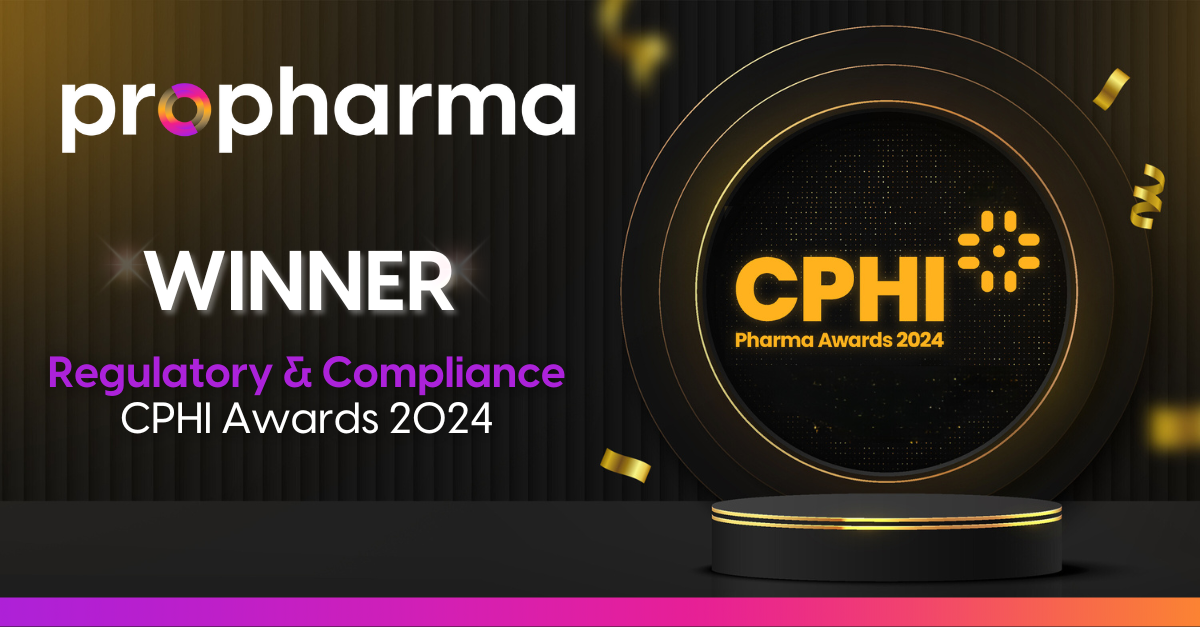
October 9, 2024
ProPharma Receives 2024 CPHI Regulatory and Compliance Award
ProPharma wins CPHI Pharma Award for excellence in regulatory and compliance innovation, enhancing efficiency and accelerating market access for life-saving therapies.
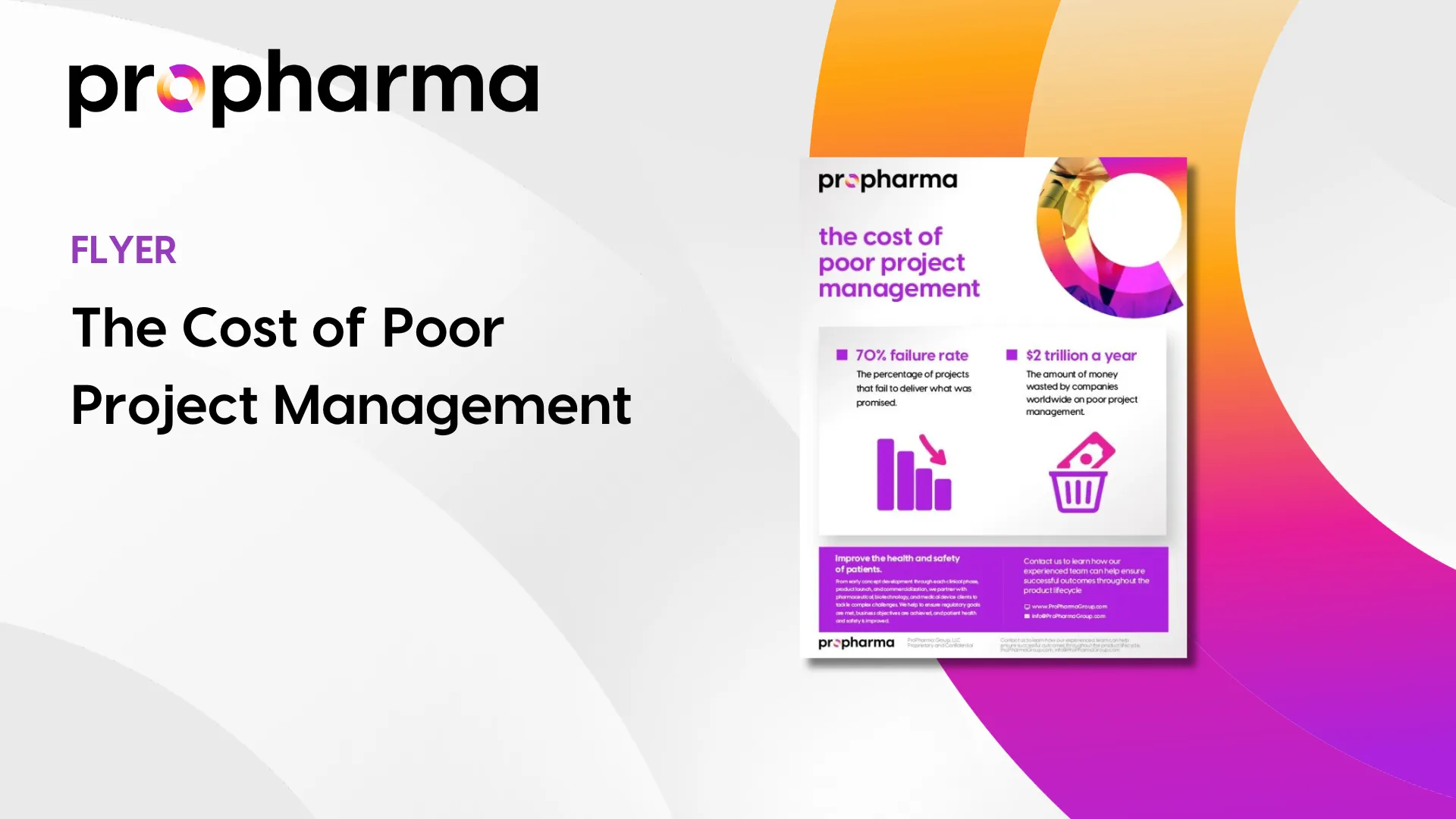
June 10, 2022
The Cost of Poor Project Management
Project Management isn’t for the faint of heart. There is a shockingly high rate of project failure… but on the other hand, great project management can be a key differentiator that leads a company...
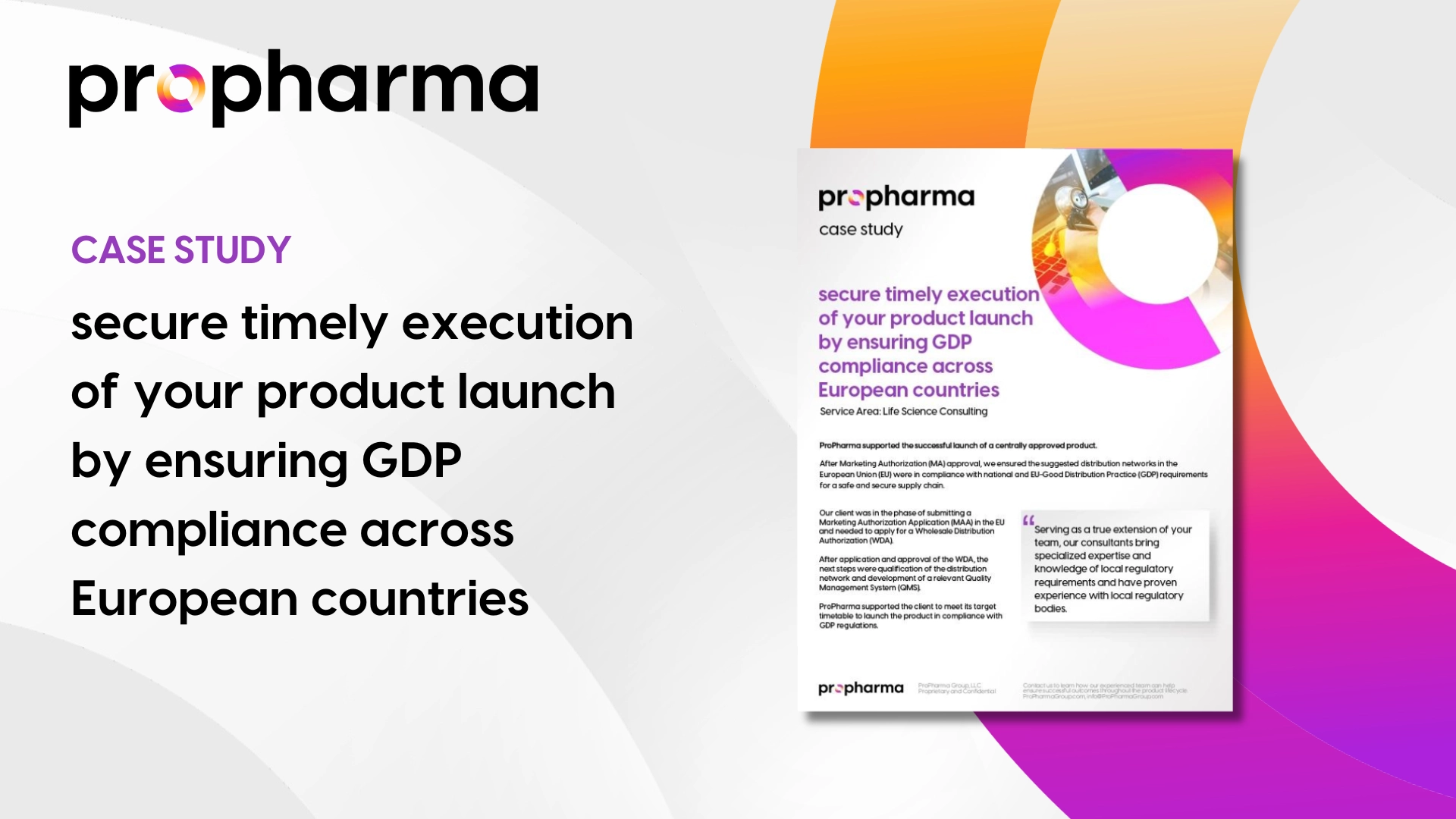
August 31, 2022
Successfully Passing MHRA Inspections for Overseas Manufacturing Sites
ProPharma offers GMP and GDP compliance services from clinical development to commercial distribution of the products' lifecycle. ProPharma’s Compliance and Quality team completed the first on-site...
News & Insights

Complex Needs Require Custom Solutions
ProPharma builds solutions at the intersection of innovation and flexibility. We’re here to offer a custom alternative that fits your unique needs. Standout solutions scaled to your size.

